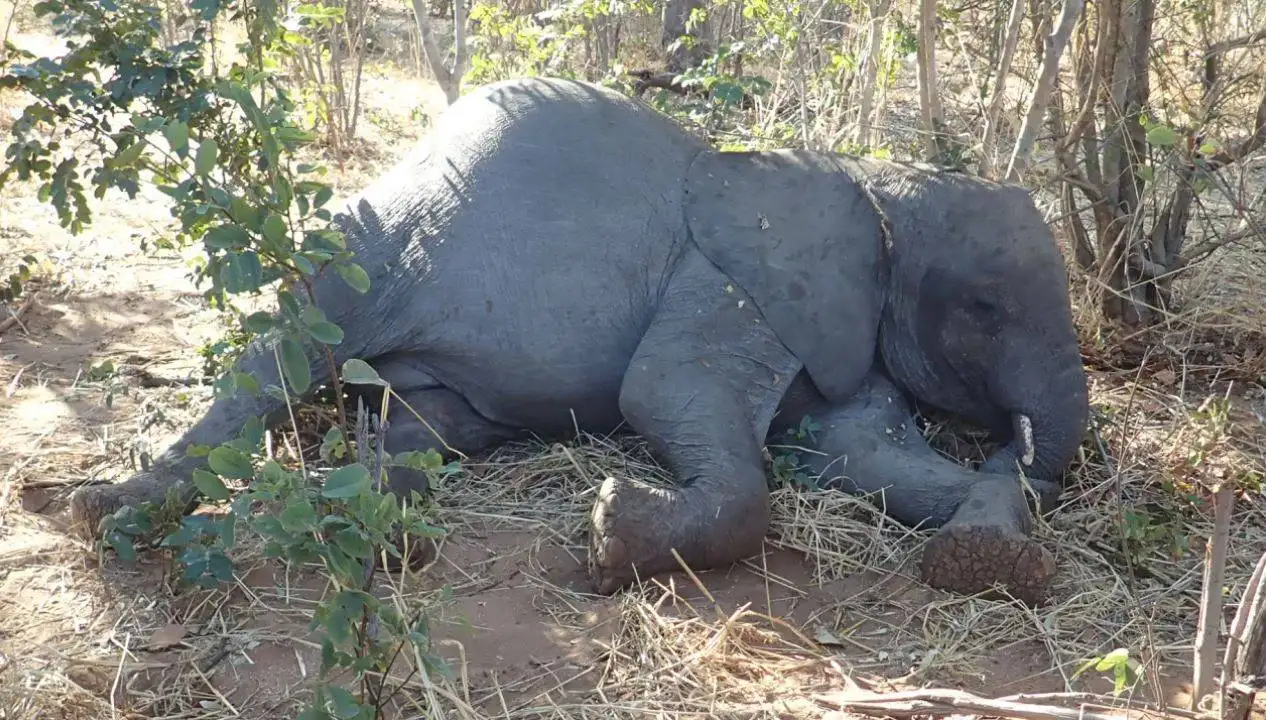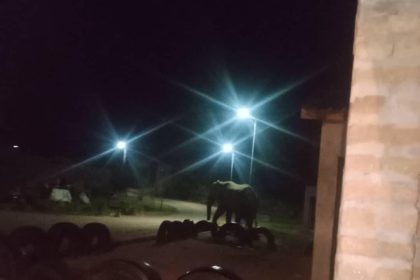The cause of mysterious mass deaths of African elephants has finally been unraveled — and scientists who authored a new report say that the outbreaks could be more likely to occur amid conditions created by the ongoing climate crisis. Thirty-five African elephants in northwestern Zimbabwe dropped dead under baffling circumstances between late August and November 2020. Eleven of the massive herd animals died within a 24-hour period.
“They died over a very narrow window. That’s one of the most enigmatic parts of the whole puzzle. That many animals dying quite close together but not right next to each other over such a narrow space of time. It’s really to my mind, rather unique, certainly in this part of the world,” said Dr. Chris Foggin, a veterinarian at Victoria Falls Wildlife Trust in Zimbabwe, who is a coauthor of the study on the cause of the deaths.
Earlier that same year, about 350 elephants in neighboring northern Botswana also had died suddenly over the course of three months. Officials and experts were initially at a loss to explain the die-offs, which occurred among Africa’s biggest population of elephants. Poaching, poisoning and drought were all blamed. It turns out a bacterial infection killed the elephants in Zimbabwe, according to the research based on samples taken from 15 of the animals that died in that country.
An analysis, published October 25 in the journal Nature Communications, showed evidence of infection by a little-known bacterium called Bisgaard taxon 45 that caused septicemia, or blood poisoning. The deaths took place as food and water resources dwindled during the dry season, forcing the elephants to travel increasing distances to look for water and to forage. The authors said that heat, drought and population density in that area were likely contributing factors to the outbreak. And the extreme conditions that scientists project will occur with more frequency as Earth warms could mean more elephant deaths in the future.
“It’s premature to say that climate change has influenced (this) but it may do so in future if we get more and prolonged droughts, or the rainfall patterns (change) and we have a much harsher dry season,” Foggin said. “I do think that if that is the case, then we are more likely to see this sort of mortality event occurring again.” The elephant mortalities in Botswana have been attributed to cyanobacterial neurotoxins, but further details have not been published, the study noted. Foggin said there was no proven connection between the Zimbabwe and Botswana elephant deaths.







